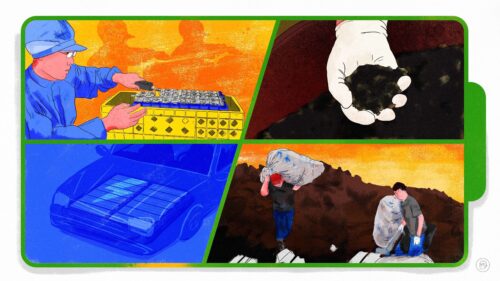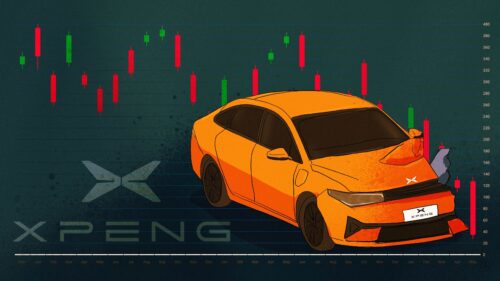‘Be blinded by a single leaf and not see Mount Tai’ — Phrase of the Week
China’s EV companies are eyeing international markets, but stiff domestic competition may mean they miss the forest for the trees.

Our Phrase of the Week is: Be blinded by a single leaf and not see Mount Tai (一叶障目,不见泰山 yíyè zhàngmù bújiàn Tài Shān).
The context
The Shanghai Auto Show in April this year was packed with Chinese electric vehicles (EVs). It was the first year Chinese companies outnumbered foreign brands, offering EVs with performance, design, and technologies that matched or exceeded ones from Germany, the U.S., and Japan.
In 2022, China produced 6.7 million units, or 64% of global new energy vehicles (NEV), accounting for 59% of the 10.52 million global NEV sales.
A new report published in June looked at what China’s EV companies can learn from how Japanese carmakers came to dominate the international automotive market in the 1970s.
One finding was that Japanese companies focused on entering the U.S. market. Firms like Honda offered cheaper, smaller, more fuel-efficient cars, which at the time were not popular with American consumers, who were used to bigger, gas-guzzling vehicles with higher horsepower.
But the energy crisis of 1973, and then of 1979, presented an opportunity for Japanese car brands to win over American consumers by offering vehicles that were much cheaper to run.
There are parallels today as Chinese EV brands look to go global. But a challenge these companies have, which their Japanese predecessors did not, is the size of their own market. The Chinese car market is huge, meaning many brands are still focusing on competing in the domestic market.
The June report warns:
If one excessively focuses on the internal competition of the domestic automotive market, it is easy to be blinded by a single leaf and not see Mount Tai, neglecting the trend of automotive globalization.
如果过分关注国内汽车市场内卷旋涡,就容易一叶障目不见泰山,忽略了汽车出海的趋势。
Rúguǒ guòfèn guānzhù guónèi qìchē shìchǎng nèijuǎn xuánwō, jiù róngyì yíyè zhàngmù bújiàn Tài Shān, hūlüèle qìchē chūhǎi de qūshì.
And with that, we have our Phrase of the Week.
What it means
Be blinded by a single leaf and not see Mount Tai is an eight-character idiom.
It first appears in “The Falcon Crown: Heaven’s Will” (鹖冠子·天则 hé guān zǐ tiān zé). The full reference is:
With one leaf covering the eyes, one is unable to see Mount Tai; with two beans blocking the ears, one is unable to hear the thunder.
一叶蔽目,不见太(通“泰”)山;两豆塞耳,不闻雷霆。
Yíyè bìmù, bújiàn Tài Shān; liǎngdòu sè’ěr, bùwén léitíng.
It’s a parable that dates back to the Three Kingdoms period in Chinese history (AD 220–280). The parable tells the story of a poor scholar who read that a mantis could hide behind a leaf to prey on cicadas. He went to find the magic leaf so he could become invisible. One day, he thought he found that leaf, so he used it to cover his eyes and started to steal others’ belongings, thinking no one could see him. Of course, everyone could see him and he was immediately caught.
In modern Chinese, the first four characters — “one leaf covering the eyes” — are normally used, with the last part known by the listener.
The phrase is similar to an English idiom, Can’t see the forest for the trees, meaning to fail to grasp the main issue because of too much attention to detail.
So will Chinese EV companies make it globally, or will they miss the forest for the trees? The June report makes no conclusions, but suggests the next few years are key in deciding whether Chinese automotive companies can do what Japanese brands did 40 years ago.






